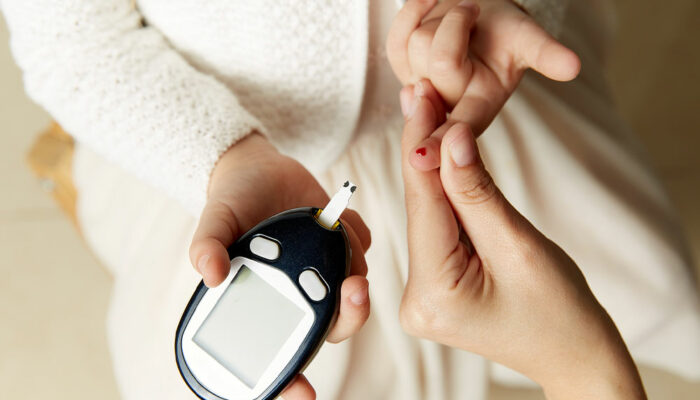8 signs of high sugar intake that can cause health issues

Excessive sugar intake is a prevalent concern today, with the increasing availability of packaged snacks, beverages, and processed foods containing more sugar than one realizes. While sugar can be a pleasurable addition to meal plans, overindulgence here can lead to a range of health issues. To understand the impact of excessive sugar intake, here is a look at a few signs to look for and potential consequences of a sugar-rich food regimen:
Signs of high sugar intake
Increased thirst and frequent urination: Excessive sugar can disrupt the body’s fluid balance. When sugar levels in the bloodstream are elevated, the body tries to dilute it by drawing water from cells. This process can lead to increased thirst and more frequent urination. It is not uncommon for those with high-sugar meal regimens to feel constantly parched and make frequent trips to the restroom.
Fatigue and energy fluctuations: While sugar provides a quick burst of energy, it is often followed by a rapid drop in blood sugar levels, leading to fatigue and energy crashes. This rollercoaster effect can leave one feeling tired and lethargic, affecting daily productivity and mood. Further, sugar-rich foods and drinks lead to frequent energy spikes and crashes throughout the day, making it difficult to maintain alertness and focus.
Weak immune system: Excessive sugar intake is associated with chronic inflammation, which weakens the immune response. So, a nutritional regimen rich in sugar can interfere with the immune system’s ability to defend the body against infections, leaving one more susceptible to illnesses like colds, flu, and other respiratory infections. Moreover, sugar can interfere with the activity of white blood cells, which fight off pathogens.
Skin issues: High sugar intake can exacerbate skin problems like acne, as sugar triggers the release of inflammatory molecules in the body. Additionally, excessive sugar intake can damage collagen and elastin fibers, increasing the risk of premature aging and the development of wrinkles. To elaborate, the process of glycation, where sugar molecules bind to proteins like collagen, may lead to the formation of advanced glycation end-products (AGEs), which contribute to skin aging by making the skin lose its elasticity and radiance.
Dental problems: Perhaps one of the most well-known consequences of excessive sugar intake is dental decay. Sugar provides fuel for harmful mouth bacteria that produce acids capable of eroding tooth enamel. Over time, this process leads to cavities and tooth decay, especially when oral hygiene practices are inadequate.
Mood swings and irritability: Sugar-induced blood sugar spikes and crashes can lead to mood swings, irritability, and difficulty in maintaining stable emotions. This is because the rapid fluctuations in blood sugar levels can affect neurotransmitters in the brain, interfering with emotional regulation. So, one may experience moments of increased energy and euphoria after having sugary foods, followed by feelings of irritability and sadness as blood glucose levels drop.
Insulin resistance: Excessive blood sugar can lead to insulin resistance, a condition wherein the cells become less responsive to insulin. This can disrupt the body’s ability to regulate blood sugar levels, resulting in the storage of more fat, particularly around the abdominal area. Such visceral fat is linked to an increased risk of health problems, such as poor blood circulation.
High blood pressure: A meal regimen rich in sugar is often accompanied by an increased intake of sodium and processed foods, both of which can increase blood pressure. This should not be ignored as a warning sign, as high blood pressure is a risk factor for heart disease, as it strains the cardiovascular system and causes damage to the arteries and heart.
Health issues linked to high sugar intake
Here are some of the major health concerns associated with excessive blood sugar:
Diabetes: Here, the aforementioned insulin resistance elevates the risk. With excessive blood sugar, cells become less responsive to insulin—the hormone regulating blood sugar levels. Following this, the body compensates by producing more insulin, resulting in elevated blood sugar levels. Insulin resistance is a precursor to type 2 diabetes, a chronic condition characterized by impaired blood sugar regulation. Here, managing blood glucose levels becomes challenging, and those with insulin resistance are at a higher risk of developing diabetes.
Heart disease: Excess sugar intake contributes to inflammation and high blood pressure, both of which contribute to cardiovascular problems. Additionally, sugar can lead to the accumulation of harmful fats in the liver and bloodstream, further increasing the risk of heart disease. The inflammatory response triggered by sugar may also damage blood vessels and increase the risk of atherosclerosis—plaque build-up in the arteries that narrows them and reduces blood flow. Over time, this may lead to heart attacks and strokes.
Blindness: High blood sugar levels over time can lead to diabetic retinopathy, a condition in which the blood vessels in the retina become damaged. This damage can eventually result in blindness if left untreated. Proper diabetes management and regular eye exams are essential to prevent this condition.
Fatty liver: Elevated blood sugar levels can lead to additional glucose being stored as fat in the liver, contributing to a type of fatty liver disease. This condition can cause forms of liver damage, such as cirrhosis, if blood sugar is not controlled. Lifestyle changes, like making better food choices and exercising regularly, are crucial in managing and preventing this condition.
Impotence: Consistently high glucose levels in the body can damage blood vessels and nerves, resulting in reduced blood flow and sensation in the genital area. This can contribute to erectile dysfunction (impotence) in those with diabetes. Proper blood sugar control, along with medical intervention, can help manage this condition and improve sexual function.
Concerns like diabetes, blindness, impotence, and fatty liver may require a combination of treatments, including prescription options. Nevertheless, one can prevent and manage such issues by addressing the signs of excessive sugar intake and making necessary changes to their lifestyle and eating habits. So, while sugar can be a part of meals, having it in moderation and in combination with nutrient-rich food is important. One can limit sugar intake by checking food labels, choosing whole and unprocessed foods, and following a balanced meal plan rich in fruits, vegetables, lean proteins, and whole grains.

